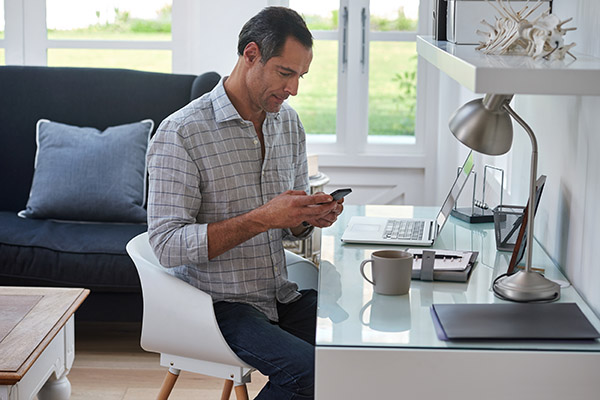 The Covid-19 crisis has provided a unique opportunity for humanity to think about what we want in the workplace, how we value the time we contribute to organisations and how we can be most productive, says Tech Futures Lab founder Frances Valintine.
The Covid-19 crisis has provided a unique opportunity for humanity to think about what we want in the workplace, how we value the time we contribute to organisations and how we can be most productive, says Tech Futures Lab founder Frances Valintine.
Speaking at the Roundtable webinar: Diversity, inclusion and the future of workplace flexibility, Frances said one of the amazing opportunities this adversity brought, particularly in New Zealand, was the chance to consider what really works for people, rather than rely on a model that’s become irrelevant in the scheme of digitalisation and our ability to effectively work remotely.
“The supercharging ahead of perhaps two or three years has enabled us to really evidence how significant this shift is but how quickly we did adapt. Now we have to work out where the balance is,” she said. “We’ve gone from one extreme to the other and the happy medium will look very different for different people but also in different environments.”
Decision makers in our workplaces are often people who have successfully navigated a career in a traditional nine-to-five industrial model of work, and they can be overly influenced by that, Frances commented.
But she believes that the nine-to-five model of work encourages idleness.
“If people have got through the work that they have, then they are almost in the position of being tied to looking busy. But they are actually idle because they are no longer engaged in what they are doing.”
Instead, leaders should encourage people to be productive. “If they are productive and passionate about what they are doing and they work to the rhythm of their body, to the rhythm of their lifestyle, their kids and their travel, you get the most out of people and you never encourage and reward idleness, which is where frustration spills over and the work culture changes quite dramatically,” she said.
Frances is excited by the bold conversations emerging in workplaces as people explore a blended model, allowing them to come together to collaborate, communicate and socialise, then work from home when it suits.
“We have to make sure we don’t lock into the way we did it just seven weeks ago.”
Constellation Brands New Zealand Managing Director Simon Towns told the webinar the company has always supported flexible working, but the pandemic has brought it to the fore.
He also supports a blended model, with the physical workspace filling a couple of important roles. One is to facilitate problem solving and collaboration, which proved to be more difficult during the period staff were working remotely, and the other is as a social hub; the place to build intimate and deeper relationships that enable the trust teams need to be more effective.
Simon sees two big challenges for organisations that want to move to more remote working. One is the physical equipment people need to access the virtual office.
“Do all of our people have access to space in their own homes to enable this? Not all my employees will have that. How do we get over that divide, not just within a company but also within society?”
The second challenge is whether people managers have the right leadership skills.
“Do we have achievement-based leadership and do we have leaders that have built teams based on trust and can be comfortable managing success based on achievement and not on clocking in and clocking out?”
Diversity Works New Zealand Diversity Manager Guillermo Merelo has long been a supporter of the benefits of flexible working and is optimistic about the “new normal” the Covid-19 phenomenon brought.
However, there are a few risks organisations need to be aware of, he told the webinar. The lockdown forced flexible working sceptics into new arrangements, but leaders need to make sure that unconscious bias and ingrained workplace cultures don’t reverse the progress made.
Another concern is that too much attention is being given to remote working at the detriment of other forms of flexible working, Guillermo said.
“People often talk as though flexible working and remote working are interchangeable concepts, but they are not. Remote working is one type of flexible working but there are many others.”
Flexible working arrangements began to bring more women into the workplace, but it was soon apparent they were good for other groups in society.
“Eventually we created a big catalogue – we have job sharing, part-time work, and so many different options.”
Remote working is perfect for a specific worker profile, usually a white-collar worker. But not everyone can work from home – the New Zealand workforce has many different groups, with many different realities and needs, Guillermo said.
Lastly, the challenges of accessing the technology required to work remotely can create forms of exclusion in the workplace for some groups. “When I think about how I found it, I wondered how it would be when you told someone who had never accessed technology that they had to do a Zoom call.”
“We need to involve people in technology, not only to create a new normal but to ensure we include everyone in the new normal.”
The Roundtable webinar series, hosted by Diversity Works New Zealand Chief Executive Maretha Smit, brings together business and academic thought-leaders to discuss issues that will be crucial for workplaces in a post-Covid-19 world. Watch the full webinar, and others in this series, here.


